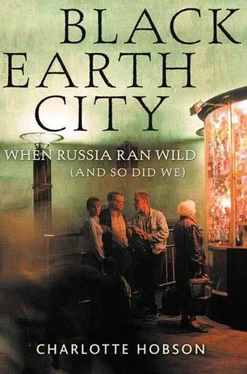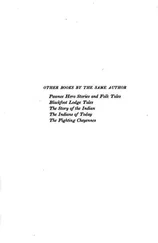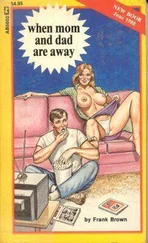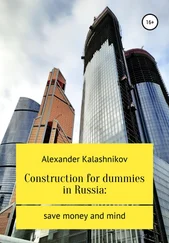I should have called Mitya to check that he was at home on his own: anything could happen in a freeze like this—school might be canceled, offices closed. But the trolleybus wheezed toward the stop before I reached the telephone, and the combination of a certain holiday feeling, and the way trolleybuses always reminded me of fat ladies, and a sudden bubble of joy made me run and jump on board. Mitya had a theory that extreme cold makes people optimistic, or perhaps in the struggle for survival, optimism in the face of icy weather has proved most effective. He hadn’t decided which came first but he pointed to penguins as an example. Penguins are clearly cheerful birds.
Now Mitya stood in his hot, dark hallway and beamed. “It must be about minus twenty, I suppose,” he said, peeling layers of clothing from me. “The perfect temperature—everything looks wonderful, it’s too cold to work, the vodka’s chilled by the time you get it home from the kiosk.” He took my foot in his warm hands. “Come on, drink the having-been-produced-for-export champagne,” he said. “We’ve got nothing to lose but our chains.”
When we emerged , the champagne had propelled us into a perfect future. Snowdrifts had swaddled Voronezh a couple of days before; now the city glittered under a crust of ice. Light streamed from every surface.
We walked fast, in no particular direction. Outside the opera house a janitor was snapping a line of icicles with a hammer to prevent them from melting in the afternoon and falling on passersby. He swung his hammer and listened to the jangle as they hit the ground.
“Playing my xylo-thing,” he said, grinning.
“A janitor musician! Well, that’s the opera for you!” commented a lady in an astrakhan coat, who had also stopped to watch. “There’s nothing in the shops,” she added, cheerfully, “so what can I do but stroll about?”
Lenin Square was crisscrossed with people walking arm in arm; as they came closer, emitting little puffs of steam, we saw they were wearing their best clothes, glossy fur coats and hats that smelled a little of mothballs—clothes that only came out when it was twenty degrees below. Rosy cheeks and noses peeped out from fringes of Siberian fox. The two bars on Revolution Prospect were overspilling onto the sidewalk where men stamped their feet and swung their arms, waiting for a vodochka to warm them up. Children were sledding down the slope to the reservoir, now and again hitting lumps of ice and flying off into snowdrifts with yelps of joy. Those who did not have sleds used trays or pieces of cardboard or just flung themselves onto their bellies like seals. Mitya and I found a wooden board and shot down the slope, colliding with a sledful of children. I instantly fell off and landed in the same drift, a few meters below them, but they had already begun to climb again. They were so bundled up that their arms stuck out at right angles to their bodies. Their faces were purple with exertion, yet they could think of nothing but speeding back down the hill. They were bewitched.
The boy, the little lord of his sleigh,
the leader of the gang,
rushes past, red as a torch.
I had just discovered Osip Mandelstam’s Voronezh Notebooks and my thoughts were full of his ice-sharp images and the sideways leaps between them.
In 1934, Mandelstam wrote his death sentence: a poem calling Stalin “the Kremlin mountaineer/The murderer and peasant-slayer.” He was arrested and interrogated, and it seemed he would be sent from prison straight to the camps. But by a lucky twist, he and his wife, Nadezhda, were exiled instead, first to the north and then to Voronezh.
“The Voronezh of 1934 was a grim place, badly off for food,” Nadezhda Mandelstam wrote in her autobiography. “Dispossessed kulaks and peasants who had fled the collective farms begged in the streets. They stood by the bread stores and stretched out their hands. They had long since eaten their supplies of dry crusts brought with them in bags from their native villages.”
Collectivization was starving the countryside, while the purges emptied the cities. The Mandelstams, as “politically unreliable” citizens, were constantly harassed. Every aspect of their lives was a struggle: they had no money, nowhere to live. Mandelstam himself was sick and nervous, and prone to attacks of breathlessness if Nadezhda left him even for a day. And yet in the midst of this desperation, he wrote three long cycles of poems filled with wonder and love of life. The repressions that would kill him just three years later could not compete, it seems, with the spontaneous delight that the country aroused in him. The snow-clad expanses, the city lost in the limitless steppe like a boat at sea, the “ten-figure forests” and the “trains calling to each other in long-drawn-out whistles”—these somehow, miraculously, gave him the freedom to write.
Most of this new work was composed on the move, as the poet walked through the back streets of Voronezh. He mumbled as he went, searching for the shape of a poem; finally, when he was satisfied, he would rush home and dictate it to Nadezhda. He was a well-known figure in the town, considered a bit soft in the head.
The children ran after him and teased him—the nickname they gave him was “the General,” and I could imagine, watching these breathless, red-cheeked kids in the snow, what gales of giggles assailed their forebears when one of them dared to shout out behind his back, “Hey! General! Who’re you talking to?”
Sixty-five years later, Mandelstam’s words are no less immediate:
I’ll wonder at the world a little longer still,
at the children and the snow.
But a smile is like the road—it can’t be faked,
and is disobedient, not a slave.
At the hot-water pipes down by the reservoir, Mitya and I met Lapochka and Petya Pravda. We knew this place well, a cozy spot where one could sit and converse honestly and openly whatever the temperature. When we arrived, the boys were deep in discussion of a topic that has obsessed Russians throughout Soviet history: accommodations.
“Divided straight down the middle, you see,” Petya was saying as we approached. We shook hands. “I’m talking about the renovation in my apartment. I’m planning on making it into two parts, one for my mother and one for me, entirely separate.”
“But you’ll barely be able to turn around.”
“Ah, but wait, you haven’t heard the brilliance of the plan. Entirely separate parts, yet linked at one vital point.”
“The kitchen?”
“Better than that. The refrigerator. I’ve designed a two-doored refrigerator—she stocks it from her side, and I eat from mine. Mother love at its most elemental.”
Lapochka got out a papirosa and began to tap the tobacco onto the ground. “You’d have to talk to each other through the refrigerator, past the milk products. It’d be good. You’d never argue, would you? Hard to argue with a yogurt?”
Petya passed a matchbox to Lapochka, who poured a little pile of marijuana from it into his palm. All that was left of the papirosa was an empty tube of cardboard and cigarette paper, which Lapochka began to pack with grass.
“Look,” said Mitya, “look at the fishermen.”
From the hot-water pipes we gazed out at the reservoir, now a snowy plain dotted with figures. They sat beside the holes they’d sawed out for themselves, motionless, dark and furry as otters. They neither talked nor looked at the scenery. They peered intently at their lines vanishing under the shadowy blue ice. It was clear that in only a matter of moments a monster, a prizewinner, would leap out at them.
As Lapochka twisted the end of the joint, Smokey turned up with another friend. The Narcomen, as this lot were known, had perfect timing in these matters. Petya Pravda claimed he could smell a joint from half a kilometer off, and determine its quality, strength and entertainment value at one hundred meters. The last consideration outweighed the rest—the Narcomen had a horror of being bored. It was an oversensitivity caused by the monstrous tedium of much of Soviet life. Lines, bureaucracy, the dreary verbosity of officialdom, the uniform architecture—the Narcomen were in vigorous protest against them all.
Читать дальше












